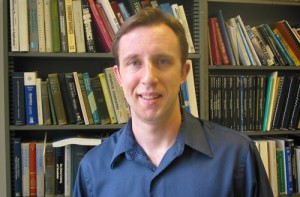Thousands of members of the UCLA community came together in a variety of ways to honor Professor William S. Klug in the wake of his tragic death.
 Klug, 39, a professor of mechanical and aerospace engineering and bioengineering, was shot and killed in his Engineering IV office on June 1.
Klug, 39, a professor of mechanical and aerospace engineering and bioengineering, was shot and killed in his Engineering IV office on June 1.
A June 2 vigil at Bruin Plaza, sponsored by UCLA’s Undergraduate Students Association Council and Graduate Student Association, drew more 1,000 people.
The following day, more than 500 people attended a vigil at the Court of Sciences led by members of the UCLA Henry Samueli School of Engineering and Applied Science family.
Subsequently, the university created The Klug Family Support Fund to assist Professor Klug’s wife, Mary Elise, and their two children, 7 and 9. As of early July, more than 900 donors had contributed a total of more than $113,000.
“Bill Klug was revered by his UCLA Engineering colleagues and by students, and his career was on a very bright trajectory,” said UCLA Engineering Dean Jayathi Murthy. “Our loss is very significant, but his family’s loss is infinitely greater. We want to do everything we can to honor Bill’s life and legacy.”
Klug had been a member of the UCLA community since his days as a graduate student. He earned a master’s degree in civil engineering in 1999, and returned to UCLA as a faculty member in 2003 after receiving his doctorate from Caltech.
A beloved teacher and excellent researcher, Klug specialized in computational biomechanics and the mechanics of biological systems. Less than two weeks after his death, a leading journal published research led by Klug that could pave the way for better therapies to address heart failure.
Speakers at the vigils included Los Angeles Mayor Eric Garcetti, UCLA Chancellor Gene Block and UCLA Engineering faculty members and students who knew and admired Klug.
At the June 3 memorial, professor of radiology Daniel Ennis implored students and faculty to forge on in Klug’s memory. “We will return to classrooms and offices and we will roll up our sleeves and we will work hard, using our minds to do amazing things,” Ennis said. “We will pull together to improve the human condition through the mastery of what is known and the exploration of what is unknown. Bill did exactly this.”
